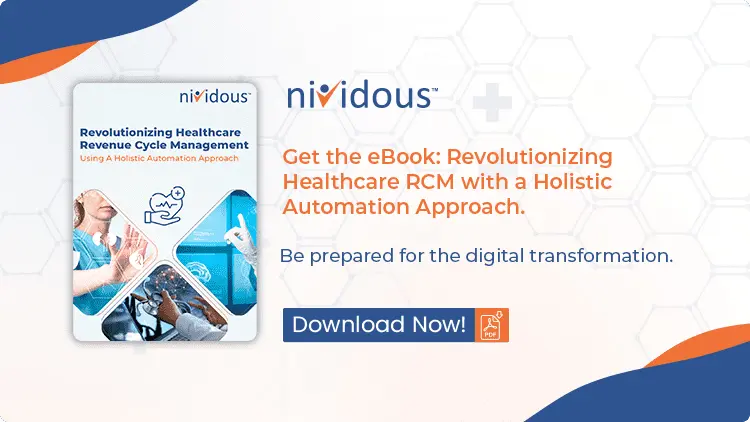Intelligent Automation in Life Sciences
Accelerate development, improve compliance, reduce process TAT leveraging intelligent automation for life sciences.
Trusted by Leading Life Sciences Firms Globally





Success Stories for Life Sciences Automation
Increased operational efficiency
Reduced errors
Cost saving
Automating Regulatory Submission Tracking System
Manual tracking of regulatory submissions with an inflexible system resulted in a lack of visibility, frequent errors, and rework. An automated submission tracking solution enabled automated assignment of new cases, prompt external quality checks within the system, visual alerts and email notifications, and a real-time KPI monitoring dashboard.
Process automation achieved
Improved process TAT
Reduction in manual errors
Automation for Vendor Portal, Accounts Payables, Tally Posting & Payment File Creation
Manual processing of approximately 500 monthly invoices from around 600 vendors led to high risk of errors and delays. The intelligent automation solution allowed for invoice classifications, automated duplicate check, automated invoice posting on Tally. Human review task is triggered upon COA and E-Way Bill availability.

Intelligent Automation in The Life Sciences Field
Intelligent automation is transforming the life sciences industry by streamlining drug discovery processes, expediting clinical trials, enhancing data management, improving operational efficiency, and reducing costs. By leveraging these benefits, organizations can bring new, life-saving therapies to patients faster than ever before. Intelligent automation is essential for life sciences organizations to innovate faster, improve efficiency, and enhance patient outcomes in a highly regulated and competitive environment.
Benefits of Nividous Life Sciences Automation
The demand for intelligent automation in life sciences is multiplying. Many organizations are starting to leverage intelligent automation to accelerate the delivery of new drugs, increase innovation, improve pharmacovigilance, streamline manufacturing operations, and enhance supply chain management, significantly improving business outcomes. Intelligent automation can help maximize efficiency, modernize workflow, increase productivity, and build a happier workforce.
Accelerate Development
Let IA Bots handle tasks from overloaded researchers, allowing them to spend more time developing new health solutions and stimulating growth in the company.
Improve Patient Service
Attend to patients’ needs immediately with Bot-assisted service. AI-enabled Bots answer customer questions 24/7 and keep up to date with patients before, during, and after clinical trials.
Improve Processing Time
With automation in life sciences, you can process repeatable, manual, and time-intensive tasks five times faster. By delivering one hundred percent accuracy, the Bots enable improved quality.
Streamline Clinical Trials
Accelerate participant recruitment and regulatory documentation. Ensure efficient trials, faster results, and reduced time to market.
Optimize Sample Handling
Streamline sample management tasks, including tracking, labeling, and sorting. Manage the sample lifecycle, reducing the risk of loss and contamination.
Improve Process Throughput
Tasks such as ELISA (Enzyme-Linked Immunosorbent Assay), cell culture transfers, and next-generation sequencing can be automated to improve throughput and consistency.
Life Sciences Automation Use Cases
Intelligent automation plays a vital role in enhancing the quality and accuracy of life sciences processes by reducing errors, improving data management, streamlining clinical trials, ensuring compliance, increasing productivity, and providing operational agility. These improvements ultimately lead to better patient outcomes and more efficient drug development processes.
Clinical Trials
Compliance Handling
Data Analysis
Regulatory Compliance
Drug Discovery and Development
Improve Pharmacovigilance
Quote To Cash
Patient Registration
Drug Registration
Quality Assurance
Data Management and Reporting
Performance Reporting
Hear it From Our Happy Clients
Discover how we’ve helped your peers succeed.

ON-DEMAND WEBINAR
Intelligent Automation and RPA in Life Sciences
A Key Enabler of Digital Transformation
Fight the rising costs in the research and development of new drugs through Intelligent Automation technology. Intelligent automation brings drugs to market faster, improves regulatory compliance, and optimizes pharmacovigilance efforts. Watch this on-demand webinar to learn more about the use of Intelligent Automation and RPA in life sciences. This webinar is jointly organized by Nividous and Kinapse, now a part of Syneos Health, the world’s only fully integrated biopharma solutions organization.
Additional Resources

eBook
Everything You Need To Know About Healthcare RCM Automation
To remain successful, healthcare organizations must focus on reducing inefficiencies and providing enhanced patient care. An integrated automation approach for RCM allows more accurate and timely revenue recognition.
NEWS
Empowering Healthcare and Life Sciences Organizations with Intelligent Automation
Learn about Nividous and RCG Global Services’ focus on empowering healthcare and life sciences organizations with intelligent automation solutions.
BLOG
Intelligent Automation In Clinical Trials: How Does It Help?
Discover how (and why) researchers use intelligent automation in clinical trials.
BLOG
The Growing Role of RPA in the Life Sciences Field
From clinical trials to supply chain, RPA is transforming the way life sciences companies operate.
Life Sciences Automation FAQs
What is life sciences automation?
Businesses, institutions, and research centers devoted to enhancing the quality of life for all living things—including humans, animals, and plants are combined under the umbrella term “life sciences.” In the life sciences industry, automation is the process of using technology to carry out complicated or repetitive operations with little or no human involvement. This can greatly improve productivity, accuracy, and efficiency across a range of life sciences research, development, and manufacturing domains.
How can RPA help in life sciences?
RPA is another emerging technology in the life sciences sector, with a focus on reducing human error, integrating diverse IT systems, and increasing worker productivity. RPA offers significant benefits for life sciences companies. By integrating this technology, they can accelerate vaccine development, enhance safety, and streamline regulatory compliance. For high-demand vaccines like COVID-19, RPA could significantly reduce time to market. Read the blog for more details:
https://nividous.com/blogs/rpa-in-pharma-and-life-sciences
Why is automation important for life sciences?
Automation is essential in life sciences for several reasons. It improves accuracy by reducing the risk of human error, ensuring that data collection, analysis, and production processes are precise. It increases productivity while speeding up the development of new therapies and technologies. This is crucial for maintaining high standards in both research and manufacturing. The technology also accelerates the discovery and development of drugs and vaccines, helping to bring new treatments to market more quickly. This rapid development is especially important for high-demand products like vaccines.
How automation is changing the life sciences industry?
Automation is ushering in a new era of innovation in the life sciences sector. With these technologies, scientists can undertake more intricate experiments and analyses, leading to groundbreaking discoveries in drug development and personalized medicine. Advances such as CRISPR gene editing and high-throughput screening are transforming research methods and opening up new possibilities for innovative therapeutic interventions, driven by automation’s ability to make research processes more efficient, accelerate drug development, and enhance personalized medicine.
Start Your Life Science Automation Journey with Nividous
Guaranteed production roll-out of a trained Nividous IA Bot in 3-4 weeks.